How Hong Kong ethnic minority families divided by extradition protest movement found a form of unity in stand against government
- Ethnic communities feel rift between older members – who came to city for stability – and younger generation who want to fight for its future
- But one social worker sees silver lining for ethnic minorities and believes the protests had brought a form of civic unity
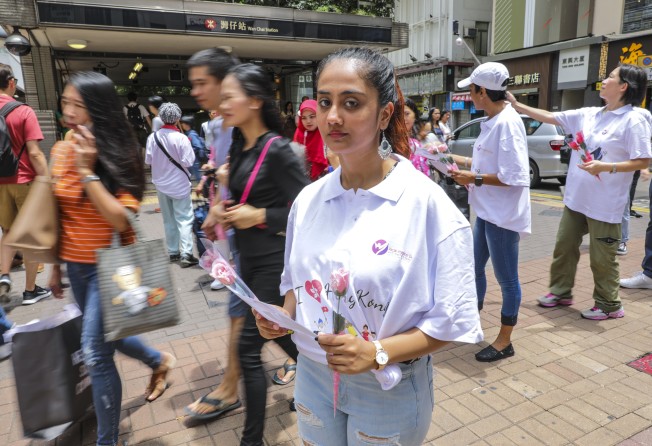
When Bonnie Dhaliwal, a fourth-generation Hongkonger of Indian descent, saw the shocking violence of white-clad men attacking railway passengers in Yuen Long on July 21, she decided she could no longer stay silent.
The following week, the 21-year-old graduate joined her mother and other ethnic minority residents in their own demonstration against the vicious attack.
The rally took place on July 28 outside the Wan Chai MTR station. About a dozen demonstrators, mostly ethnic minority members, held placards and handed out leaflets and flowers, sharing a messages of love and acceptance.
“I’ve never seen Hong Kong in a state like this. It breaks my heart,” says Dhaliwal. “Hong Kong is, and will always be, my home.”
Hong Kong has been rocked by months of protests against the now-shelved extradition bill, which would have allowed for the transfer of criminal suspects to jurisdictions where the city has no handover agreements, notably mainland China.
The ongoing demonstrations have morphed into a full-fledged governance crisis, with calls for wide-ranging political reforms, including the complete withdrawal of the extradition bill and an independent inquiry into police conduct at the protests.
The bill saga has polarised the city. Rival pro-police and anti-bill rallies have drawn huge crowds, and there have been frequent conflicts between the two camps on social media and even in the streets. A social worker said ethnic minority communities were also deeply divided by the recent protests, mirroring the rift in Hong Kong society as a whole.
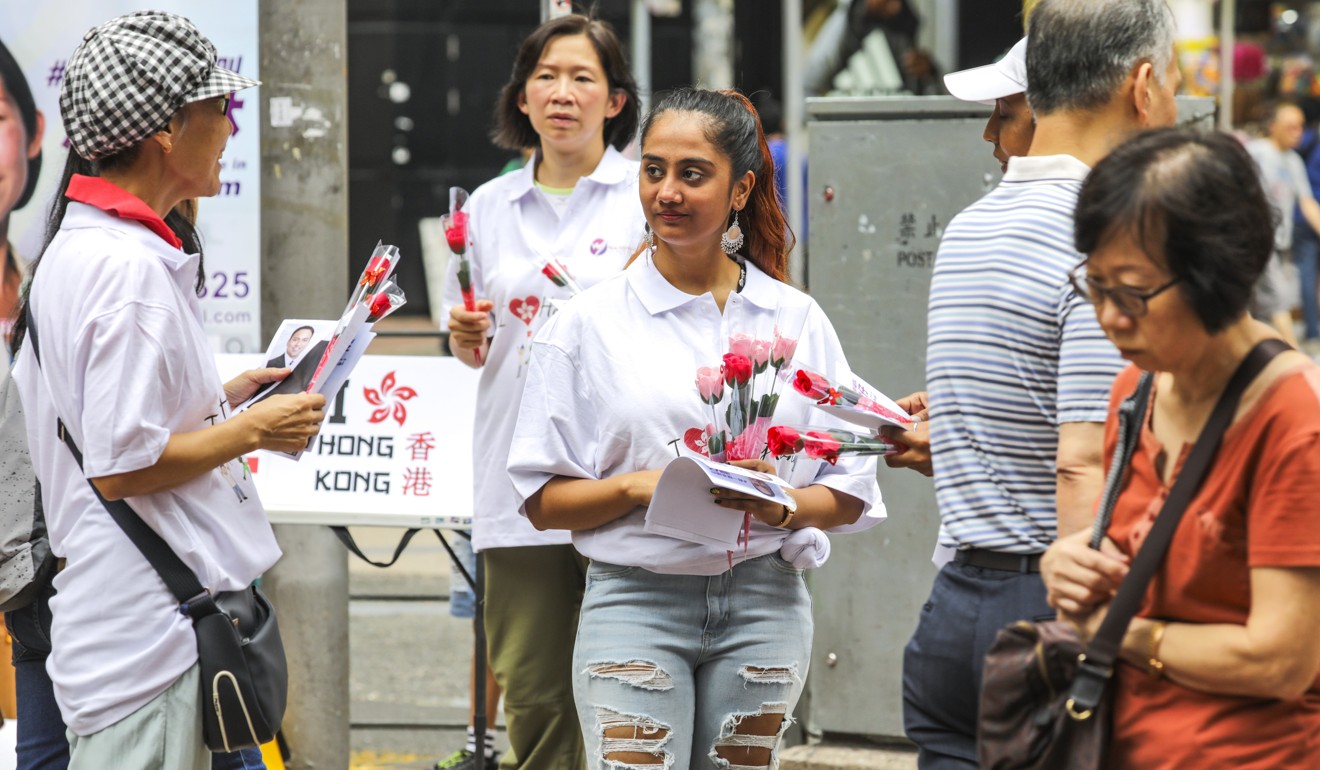
The ethnic minority social worker said the division was most evident between older family members – who came to Hong Kong for a more stable life – and the younger generation, who have a strong sense of belonging to the city and consider it their duty to safeguard its future.
The younger members of the community also tend to believe that uniting with other young Hongkongers could help facilitate understanding and help fight against the racial discrimination that their seniors might have had to put up with.
“Like the rest of Hong Kong, the older members in our community tend to hold more conservative views. [They] think the government is always right and believe in the virtues of stability and harmony, but that is also because many first-generation migrants fled from a chaotic country,” said Jeffrey Andrews, 33, of Indian origin and the first ethnic minority social worker in the city.
“But the young have no memory of that. They were born and bred here, have studied and worked here, and developed a sense of belonging to this place, so they usually take a more active part in the protests.”
Andrews said protesting could be a more risky business for ethnic minority members, citing his own experience with discrimination.
“We are used to being racially profiled by the local police, and that could make us an easy target at the protests due to our visibility. That’s why our parents are especially worried.”
We are used to being racially profiled by the local police, and that could make us an easy target …
According to 2016 government figures, there were 584,383 ethnic minority residents in Hong Kong, making up 8 per cent of the total population. Between 2013 and 2018, there were 397 complaints lodged under the Race Discrimination Ordinance with the Equal Opportunities Commission, the city’s equality watchdog.
In Dhaliwal’s family, her 15-year-old sister firmly supported the anti-bill protests. But Dhaliwal, the second oldest of four siblings, and her mother disagreed. At times, there were lively – even heated – discussions at the family dinner table.
“My younger sister believes the protesters have tried this peacefully before, but the government doesn’t give in to their demands. So they have to try more violent means – but my mum and I disagree.”
Dhaliwal’s mother did not want her daughters to be involved in political movements. But because the teenage sister insisted on joining the protesters, the three women went together on June 12 when demonstrators besieged the Legislative Council in Admiralty.
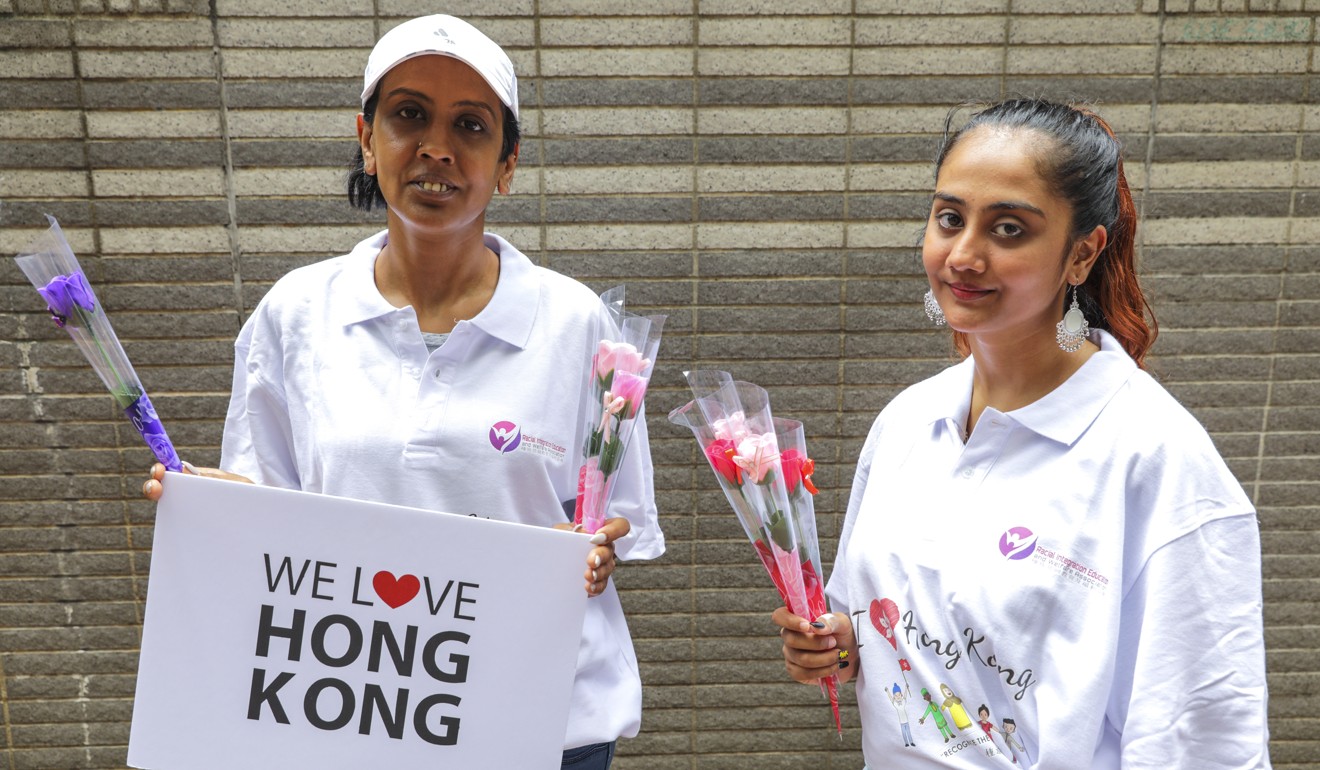
They brought water and supplies to the protesters, chanted slogans and waved placards. They left before police fired tear gas and rubber bullets to disperse the crowd.
“After that day, my mum told us not to go any more because she thought it could be dangerous, and my sister was quite upset about it,” Dhaliwal says.
The July 21 attack in Yuen Long was when politics caught up with them – and united the family. It was when a group of men with sticks and metal rods stormed the Yuen Long MTR station and attacked commuters, appearing to target protesters in black who were returning from a march – but also assaulting regular passengers.
At least 45 people were injured and 12 arrested over the incident. The attack, suspected to be carried out by triad gangs, was seen as retaliation against protesters who had occupied streets and disrupted businesses. Messages also circulated online alleging that South Asian people were involved in the attack – leading to outbreaks of discrimination, especially to those ethnic minorities living in Yuen Long.
Many members of the community were forced to close their shops or skip work – and some locked themselves at home. Like other ethnic minority members in the city, they stayed quiet and laid low for many weeks.
Dhaliwal said she was pained to see widening rifts in ethnic communities, especially after the Yuen Long attack and that was why she joined the anti-violence demonstration in Wan Chai.
“I know I may risk recrimination and discrimination, but I need to come out and make a stand against violence,” she said.
“I am not anti-police or anti-protesters because I think the police officers are just doing their jobs, and I sympathise with some of the demands of the protesters. But I make no apologies about standing against violence,” says Dhaliwal.
I make no apologies about standing against violence
For the last decade, Andrews has been working with ethnic minorities and refugees at Chungking Mansions in Tsim Sha Tsui. He sees social standing as another fault line in the ethnic minority community: the wealthy and educated become part of the establishment, sitting on government boards and being appointed to public institutions.
“A 23-year-old young man from an elite Indian family recently approached me online. [He] started off by asking me why the protesters are so violent and what have I got against China and Hong Kong? I told him why don’t you come down to the protests and see for yourself,” Andrews says.
“He came and he saw the smoke bombs and the tear gas, and now he’s changed his mind. [He] keeps asking me, when’s the next protest?”
The man’s parents, however, do not want him at the protests. “I got a call from his older sister asking where he is and when he would return home. I said, don’t dodge your family’s call and you have to keep yourself safe.”
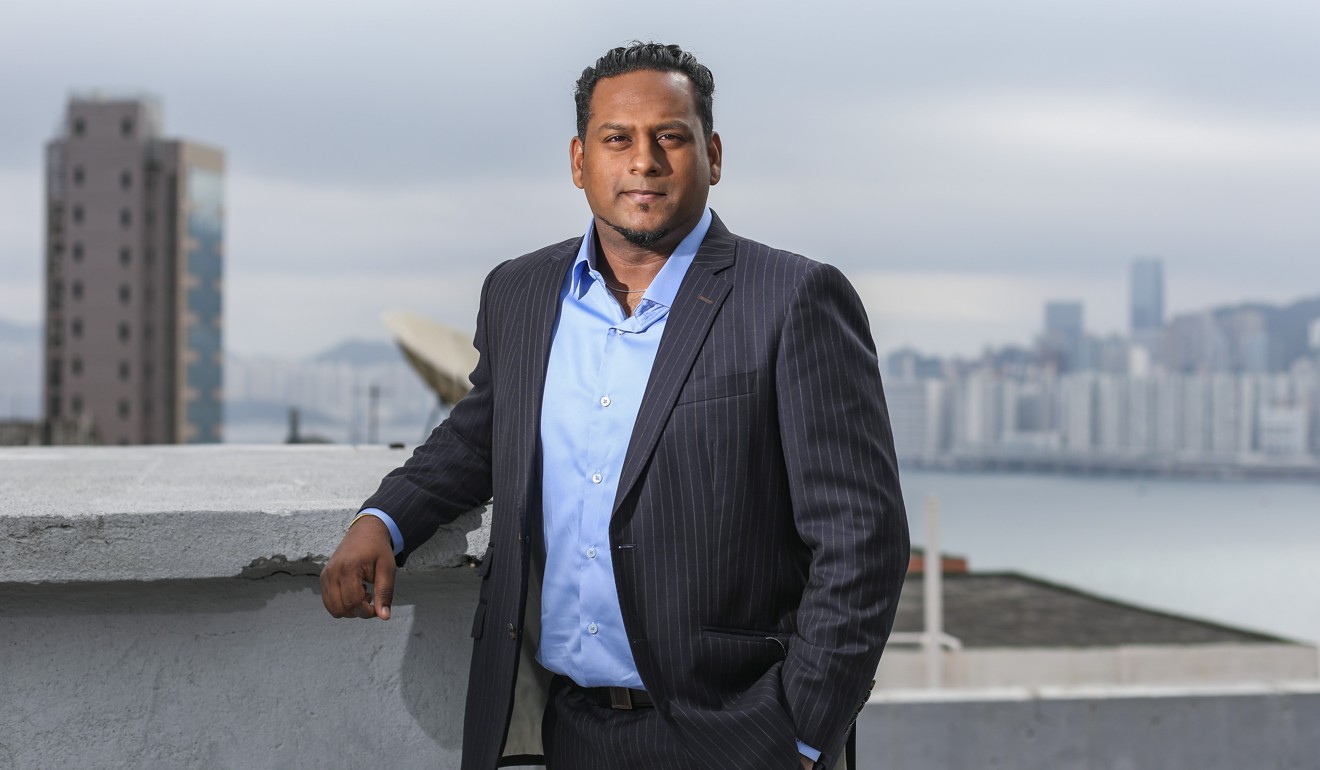
Andrews, who speaks fluent Cantonese, said he sees a silver lining for ethnic minorities and believes the recent protests had brought them closer to the local community.
“Many Chinese Hongkongers left supportive messages on the protest pictures I posted online, saying they were deeply moved by our solidarity and thanking us for standing shoulder to shoulder with them,” Andrews says.
“Another person said we are better than the new arrivals from mainland China, we are the real Hongkongers. I am hopeful that racial discrimination will become less frequent and serious in the future.”
Puja Kapai, an associate law professor at Hong Kong University, said ethnic minorities in the city are politically engaged.
“Language and cultural barriers have been holding us back. We have been limited in our ability to speak out, because we don’t have access to information in our language, let alone good and accurate information,” she says.
Kapai offers her legal expertise at information sessions for ethnic minority members, teaching them about lawful assembly and their rights if they are arrested.
“After knowing the legal dimension of the [extradition] bill, they are actually quite concerned because they have seen how [mainland] China has treated its ethnic groups.”
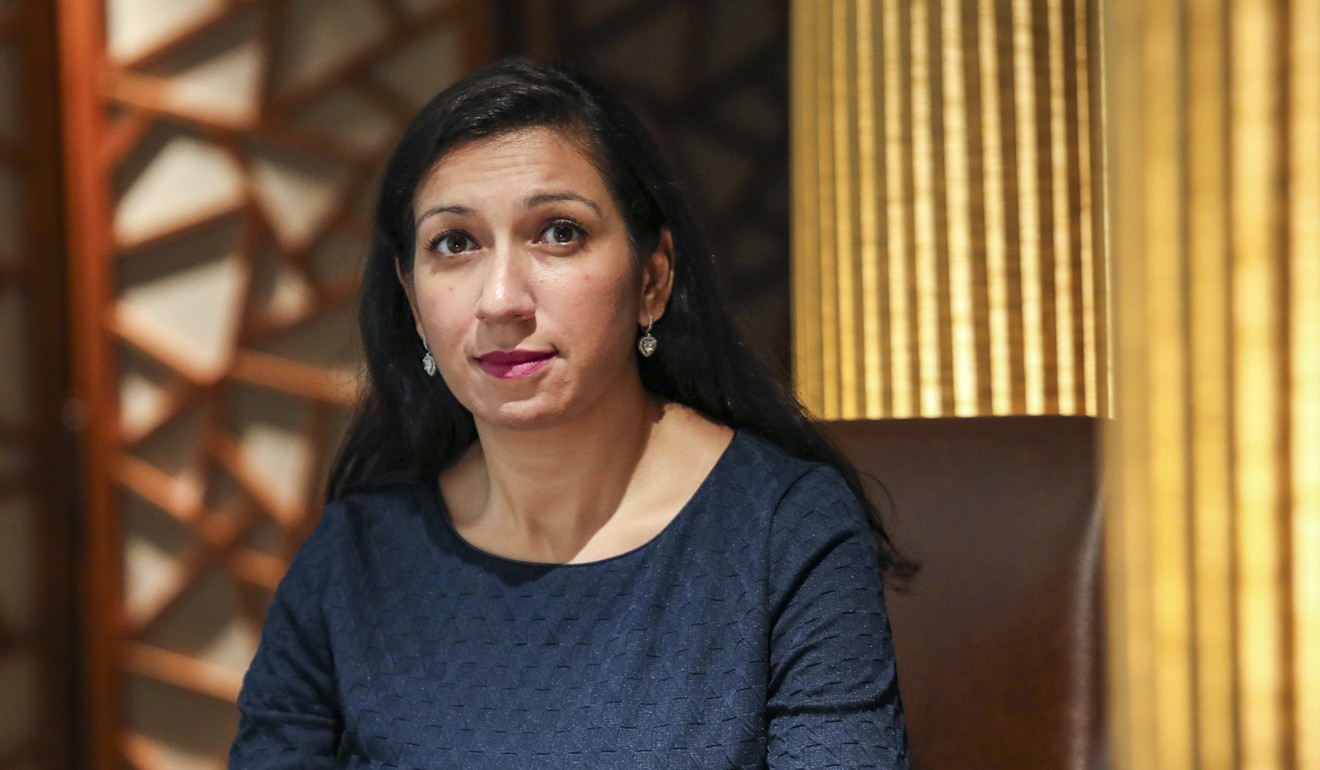
A 2016 survey conducted by two NGOs estimated that only 55 per cent of the eligible ethnic minority voters have registered, lower than the overall rate of 73.5 per cent in the city.
But Andrews said he believes the situation could soon improve, as the recent protests have become a political awakening for many South Asians in Hong Kong.
“I’ve sent out messages on Facebook to people I know asking them to register, and more than 100 of them told me they have [registered] recently. They are realising the importance of taking part in the political conversation if they are serious about the city’s future,” he says.
Andrews said his community was keen to make their voice heard in district council election in November.
“Even older people have asked me who to vote for. I feel encouraged by the growing awareness, and proud of being Hongkongers who are exercising our rights.”